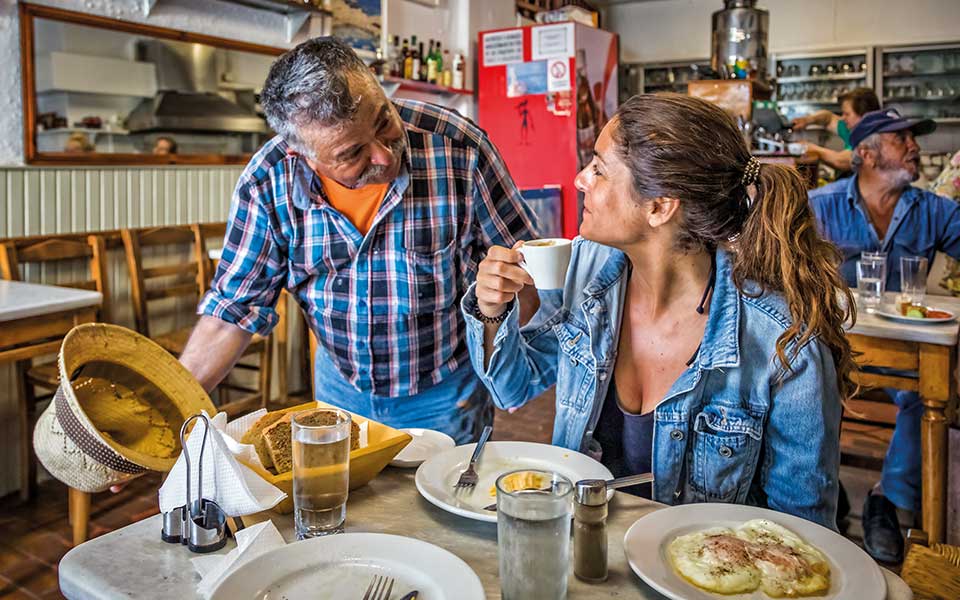Ιf you google the words “Greece” and “food,” it’s possible you’ll stumble on a recent article about the island of Milos and its relatively unknown local cuisine, which is divine. Or you might read somewhere that every summer, Mykonos gathers the crème de la crème of Greek chefs, who present some of the most interesting dishes from a very special micro-cuisine that we could call “Cycladic fusion.”
Or perhaps you’ll find yourself scrolling your way through articles on Santorini’s Assyrtiko, wine made from the grape variety that was born on that volcanic island and has won over oenophiles all around the world. Another thing you’ll probably come to learn is that Ikaria is known as the island of longevity, and that this is believed to be the direct result of the eating habits of its inhabitants.
Something else you might find out is that if you make your way to Patmos – that enigmatic island where the Book of Revelations was written – you’ll have to book a table to enjoy an unforgettable seafood meal on the neighboring isle of Marathi, where luxurious vessels from all over the Mediterranean drop anchor.
You might even discover that Tinos has become a trendy destination for knowledgeable foodies. Thessaloniki, you’ll read, has acquired one of the most interesting restaurant scenes in the entire country. It’s more than likely that you’ll come across articles describing Athens as one of the hottest capitals in terms of both its food and nightlife options.
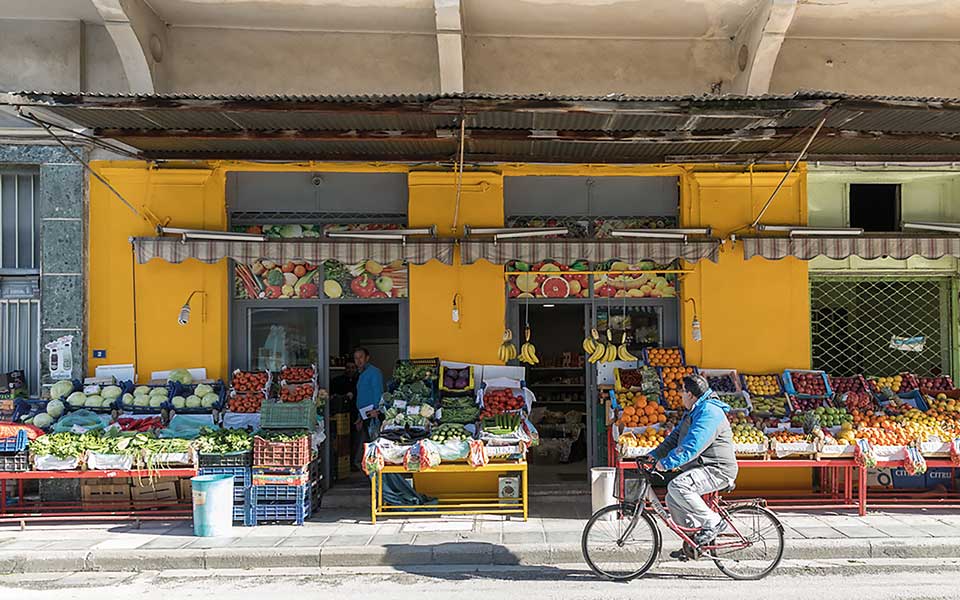
© Alexandros Antoniadis
However, everything that is being written these days about Greek gastronomy is really nothing new. For Greeks, food has always been a big thing.
City dwellers depend on rural producers. In the past, relatives who lived in the provinces would send their families in Athens or other cities part of whatever they produced: fresh eggs, olive oil, incomparably sweet tomatoes, crunchy little cucumbers, wild greens (like “pheasant’s-eye”) picked from their yard, as well as herbs with medicinal properties gathered from hills and mountains.
Today, this job has fallen to a number of notable producers and distributors who spread the bounty of the land across Greece and abroad. With a climate that truly is a farmer’s best friend, the country has a renewable treasure in its agricultural products. Add to this the riches of the sea, and what emerges is a wealth of raw materials.

© Clairy Moustafellou
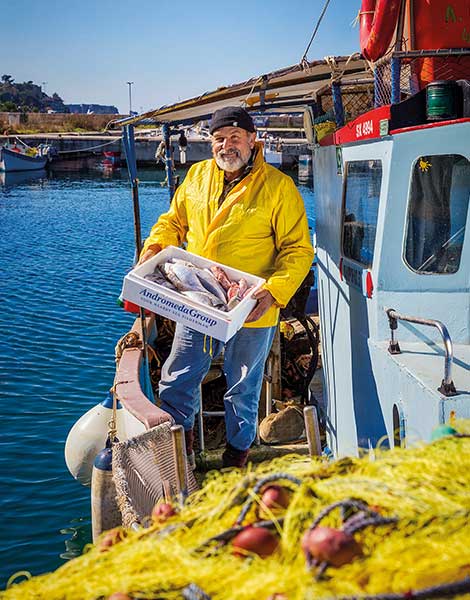
© Perikles Merakos
The star products
Many items that are hard to find and much sought-after in other countries are readily available in Greece and are not at all pricey, as nature produces them in generous amounts.
In this country, “gourmet” is a plant that makes its appearance for just a few days each spring, like thin, green wild asparagus; it is cheese products from the islands, made using exceptionally high-quality milk from goats and sheep that sip seawater; and it is mastic, a resin produced naturally by the tree of the same name, found solely on the island of Chios. The special saffron known as Krokos Kozanis PDO, which has made the entire area of Kozani famous, is gourmet, and so are dozens of varieties of olive oil, from Koroneiki – the best-known – to Kolovi and Manaki, which may not be famous but are indeed very special.
These products, rare and not, are what help create the cuisine of Greece, a way of cooking that is dependent on the change of seasons. The complex character of Greek cuisine is derived from the different products found in each area; for that reason, if we were to analyze the national food culture, we’d soon find ourselves exploring the many smaller local ones that comprise it.
It is thanks to the specific products of different areas that distinct local cuisines emerge. Examples include Santorini with its fava purée and its cherry tomatoes; Arta with its citrus fruits; Kavala with its mussels; the Cyclades with their sterling small-scale cheeses; Crete with its incomparably tasty vegetables, rusks, olive oil and wine; Messinia with its delicious fruit, nuts, olives and honey; and Central Greece with its sheep, goats and dairy products.
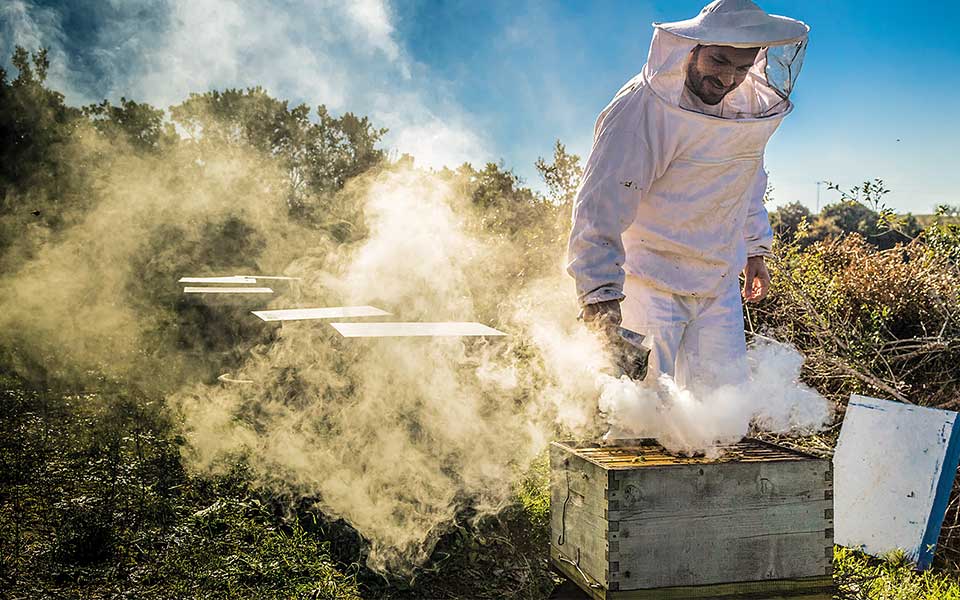
© Perikles Merakos
Turning Great ingredients into Great cuisine
Professional chefs were the first to work towards building Greece’s gastronomic reputation. It was they who started spreading a culinary message that was familiar to Greeks but wholly unknown to visitors; people wondered what kind of cuisine Greece had. Then, when fine dining and the gourmet food industry became the focus of global trends, and food became a reason to travel and explore, it was these same chefs who also began to travel abroad in order to train with, and to become inspired by, famous international chefs.
One of the results of this development was that these Greek chefs no longer viewed tradition as an obstacle preventing them from evolving. They imported new techniques and methods into their kitchens, while retaining Greek ingredients (for the most part) and attempting to elicit the full, pure tastes of these products. Of course, not all chefs chose to do this, but enough of them did to allow the shift in Greek gastronomy to become a tangible, visible change.
Among the discoveries that these more adventurous chefs made was the realization that they didn’t need to make rich sauces filled with saturated fats when olive oil was available, and that the greasy fried dough wasn’t a necessary evil, given that they had access to traditional wood-burning ovens.
In turn, producers further improved their products through the use of new technologies, greater standardization and more stringent quality controls. This is what led Ferran Adrià, the famous Spanish chef and one of the fathers of contemporary gastronomy, to use Greek avgotaracho (bottarga) from Messolongi exclusively, for instance. Many other chefs have followed suit with favorite items of their own; once you’ve tried these local stars, you’ll know why.
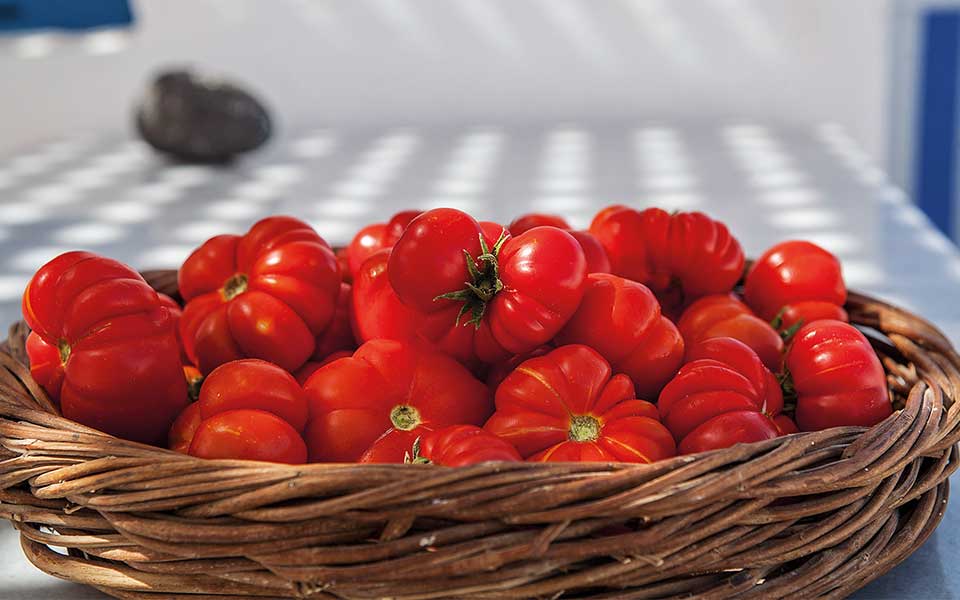
© KYellow
dare to share
Greek cuisine isn’t predominantly a matter of technique. It is what it is because of the unique raw ingredients that go into it. They give the final product its tastiness.
But there’s another component that’s common to many Greek dishes – it’s the idea that food is to be shared. Cooking for others is an act of offering, of giving, of philoxenia (hospitality). The fact is, Greeks like to share their food. So don’t think it odd if someone hands you fruit from their orchard; or if you happen to be at some port in the Cyclades as fishing vessels are mooring and someone offers you some fresh sea urchin caviar. It’s entirely possible that someone will invite you to a kafeneio (traditional coffee shop) and insist on treating you to a coffee or another beverage, or good-naturedly demand you attend some celebration or village panigyri (festival).
Be sure to accept these invitations with grace. In doing so, you’ll be adding the final ingredient in Greek cooking: the welcome guest.

